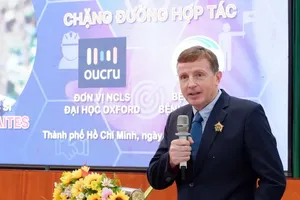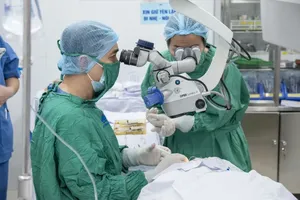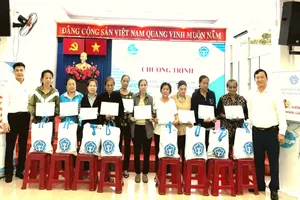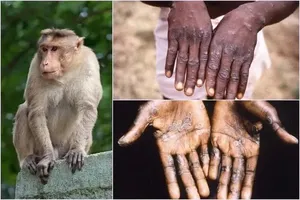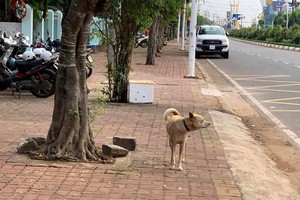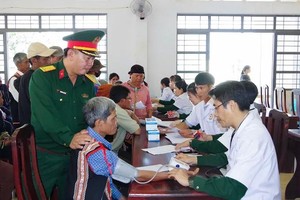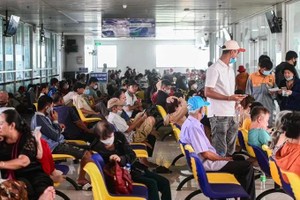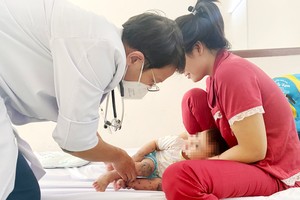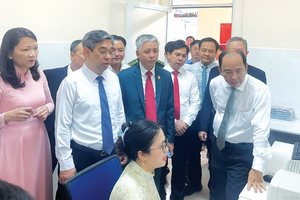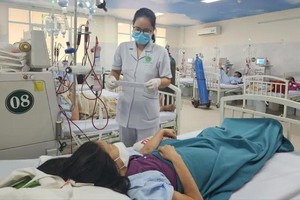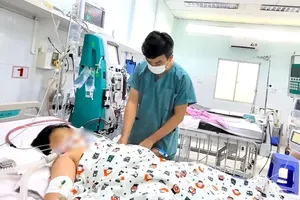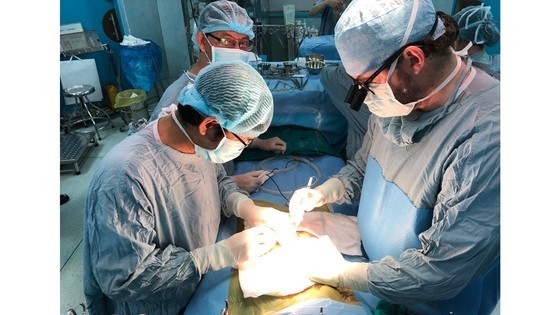 |
Children’s Hospital 2 will continue performing liver transplants |
Today, the Department of Health of Ho Chi Minh City said that the Children's Hospital 2 is re-developing the Child Organ Transplantation Project which will be submitted to the Ministry of Health for evaluation and approval. The Department of Health has also asked the Board of Directors of Children's Hospital 2 not to interrupt liver transplantation for children who are in need of transplantation.
The Ho Chi Minh City Department of Health said that hospitals under the Ministry of Health in the city usually work closely; so Children's Hospital 2 continues to carry out organ transplants with the support of medical experts from the University of Medicine and Pharmacy Hospital and Cho Ray Hospital.
Doctors from the University of Medicine and Pharmacy Hospital and Cho Ray Hospital will support Children's Hospital 2 to find donated organs from adults so that surgeons of the Children’s Hospital will still perform liver and kidney transplants on children as the hospital has performed for more than 10 years.
According to the plan, surgeons of Children's Hospital 2 will perform liver transplants with the assistance of their peers from the University Hospital of Medicine and Pharmacy in June.
Surgeons of the Children's Hospital 2 got success with Vietnam-Germany separation surgery in 1988 which was its first transplant. Afterward, Professor Tran Dong A, chief surgeon of the transplant, has been known all over the world and the professor later was invited to report on this rare surgery at many conferences.
In 1989, at the ninth Congress of Pediatric Surgery held in Hungary, Professor Tran Dong A met Professor Bernard Otte - a leading expert in pediatric liver transplantation in Europe with the technique of reducing brain-dead adult livers for transplantation to children.
By 1995, Professor Raymond Reding - a liver transplant specialist from the Institute of Sant-Luc accidentally read an article about the Vietnamese-German surgery published in the world's leading newspaper on pediatric surgery. Professor Raymond Reding soon contacted Professor Tran Dong A proposing cooperation in gastrointestinal diseases, hepatobiliary diseases, and liver transplantation for Vietnamese children.
In 1998, Prof. Dong A went to Belgium to discuss a plan for gastrointestinal diseases, hepatobiliary diseases and liver transplantation for Vietnamese children with Professor Reding; later, a point-to-point inter-university training program (PIC) was established.
The Belgian professor helped medical workers of the Children's Hospital 2 with training in the fields of gastrointestinal and hepatobiliary pathology and liver transplantation.
After medical workers finished their training in Belgium, the People's Committee of Ho Chi Minh City allowed the Children's Hospital 2 to implement the inter-university program and the children's liver transplant project with the technical support of medical experts from the Institute of Sant-Luc (Belgium). The municipal People's Committee has approved for Children's Hospital 2 to purchase medical supplies and equipment for children's organ transplants.
In 2005, the Ministry of Health issued a Decision allowing Children's Hospital 2 to receive the transfer of kidney transplant and liver transplant techniques for children.
According to Assoc. Prof. Tang Chi Thuong, Director of the Department of Health of Ho Chi Minh City, the incredibly rare donated organs for children are one of the difficult problems of organ transplantation. According to Article 5 of the Law on donating, taking and transplanting human tissues and organs, only persons aged full eighteen years or older with full civil act capacity have the right to donate tissues and organs while alive, after death and donation. Therefore, brain-dead children are not currently included in organ donation.
In the face of the real situation, the health sector hopes that the law will be soon adjusted to facilitate the organ transplant process so that doctors can directly take organs from brain-dead children in the future, said Dr. Tang Chi Thuong.
The first kidney transplant at the Children's Hospital 2 was performed in June 2004 and the first liver transplant was performed in December 2005 on two children who were the youngest patients in Vietnam to receive an organ transplant at the time. Currently, both children are adults and have healthy lives.
Similarly, a second successful liver transplant was performed on an 11-month-old child. The number of liver transplants from 2005 to 2019 was 13 cases. From 2020 to now, surgeons performed 12 transplants.
